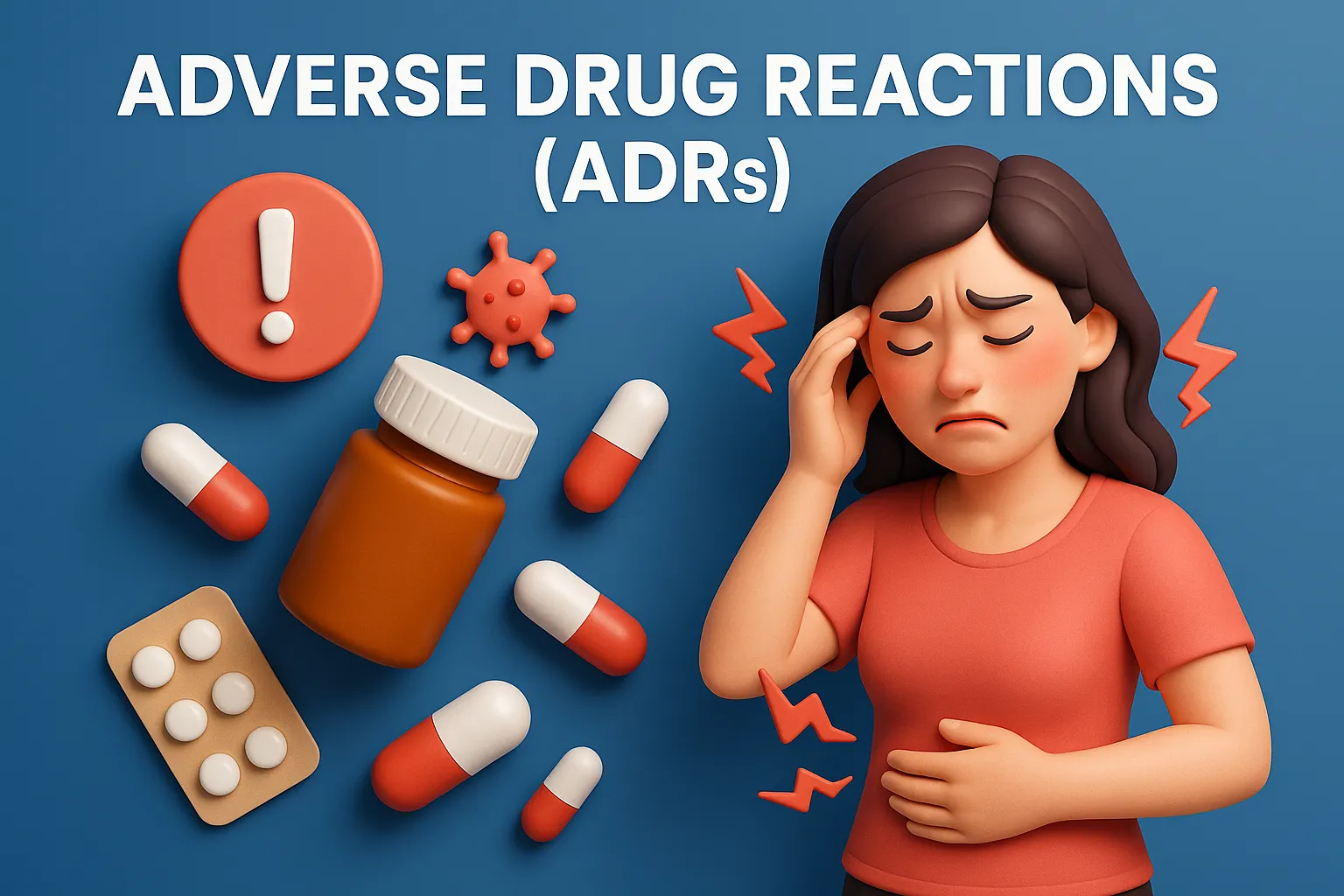Adverse Drug Reactions (ADRs) are harmful or unintended effects of medicines occurring at normal therapeutic doses.
Definition of Adverse Drug Reactions (ADRs):
- An adverse drug reaction is an unintended and harmful response to a drug that occurs at normal therapeutic doses used in humans for prophylaxis, diagnosis, or treatment.
Classification of ADRs:
-
Type A (Augmented)
- Dose-dependent and predictable
- Related to the known pharmacological action of the drug
- Usually mild and preventable
- Examples:
- Hypoglycemia from insulin
- Bleeding from warfarin
-
Type B (Bizarre)
- Unpredictable, not dose-related
- Often immune-mediated or idiosyncratic
- More severe and sometimes life-threatening
- Examples:
- Anaphylaxis to penicillin
- Stevens–Johnson syndrome from sulfonamides
-
Type C (Chronic)
- Occurs during long-term therapy
- Related to cumulative dose
- Examples:
- Adrenal suppression from long-term corticosteroid use
-
Type D (Delayed)
- Appears after a prolonged period following drug use
- Examples:
- Carcinogenesis after chemotherapy
- Teratogenic effects from thalidomide
-
Type E (End of use)
- Related to withdrawal effects after discontinuation of a drug
- Examples:
- Rebound hypertension after stopping clonidine
-
Type F (Failure of therapy)
- Unexpected lack of effectiveness of a drug
- Often due to resistance, poor compliance, or wrong dosage
Click Here to Watch the Best Pharma Videos

